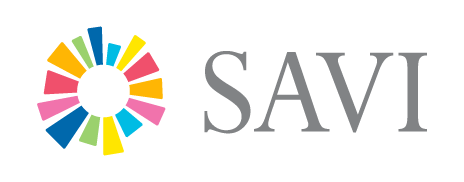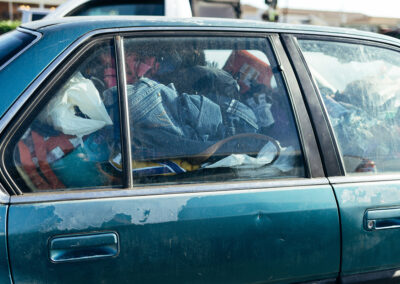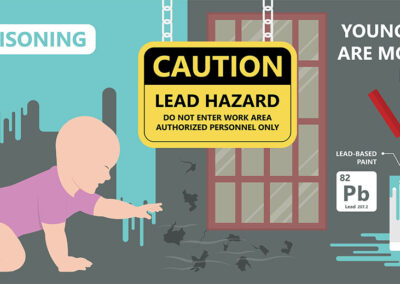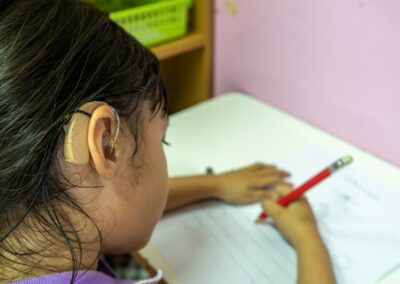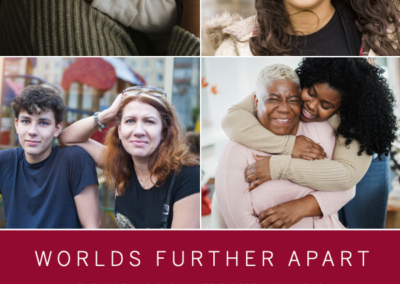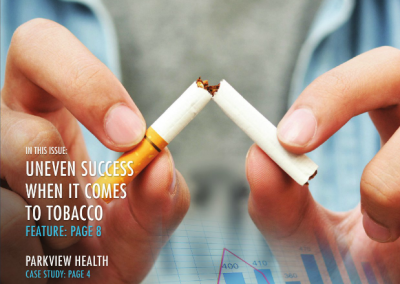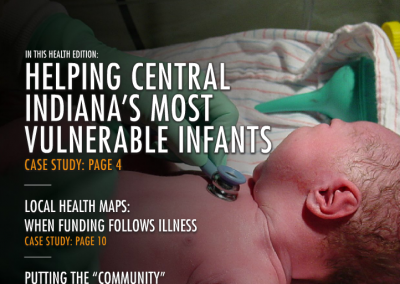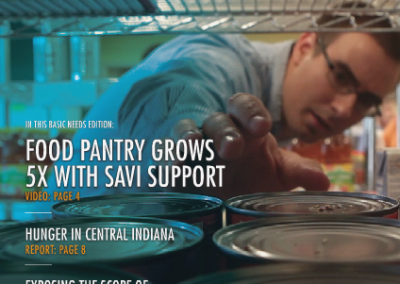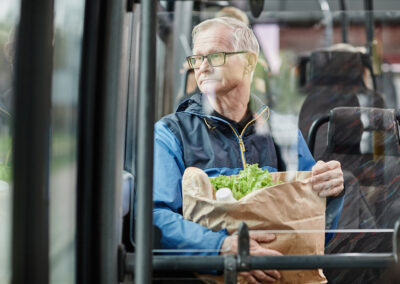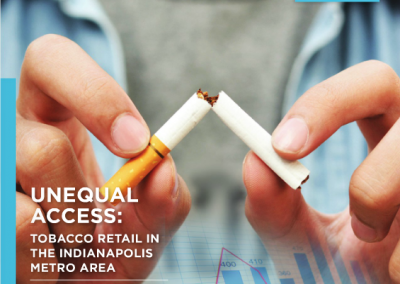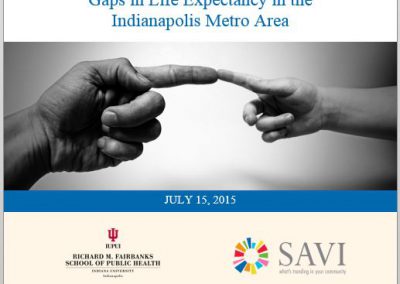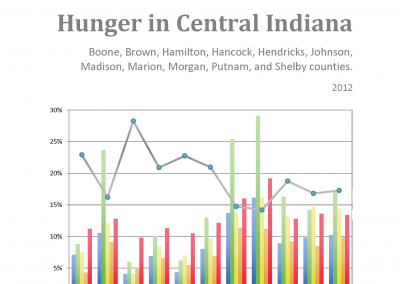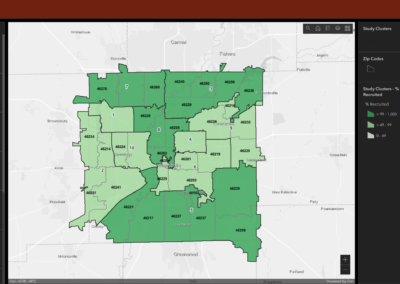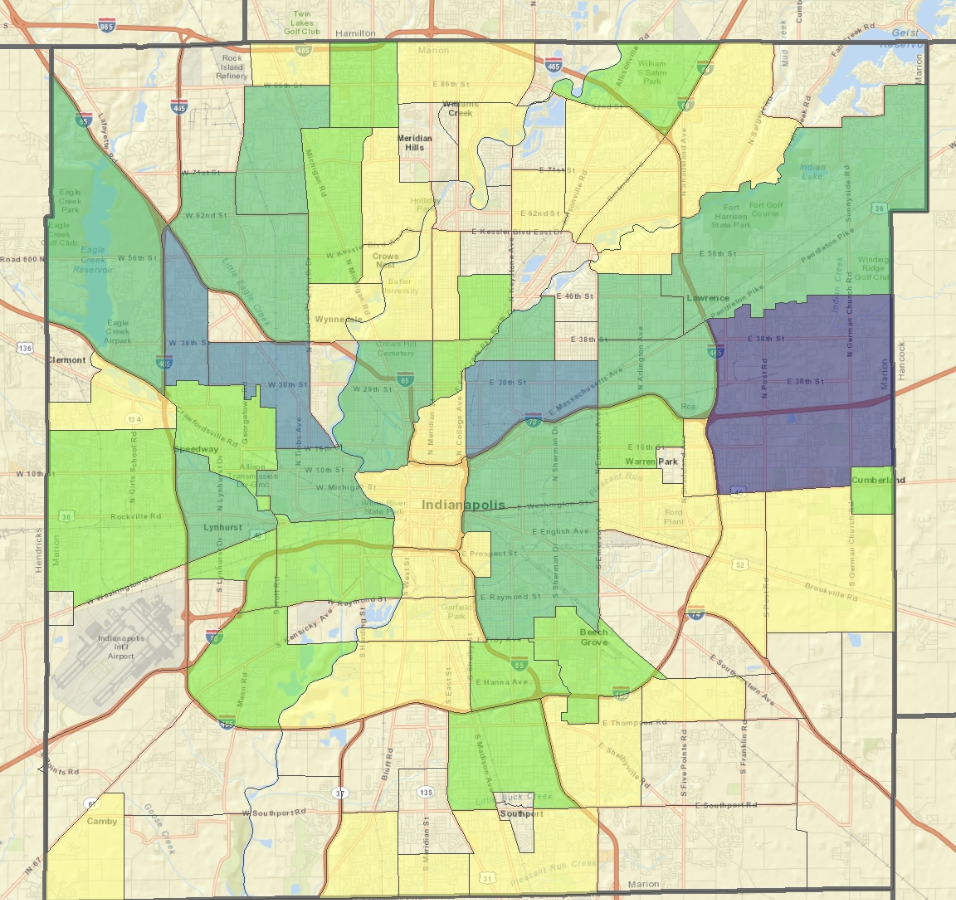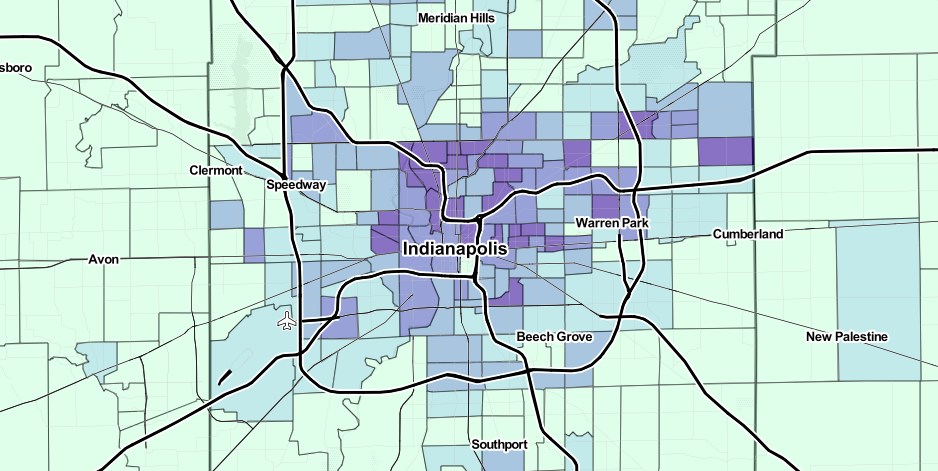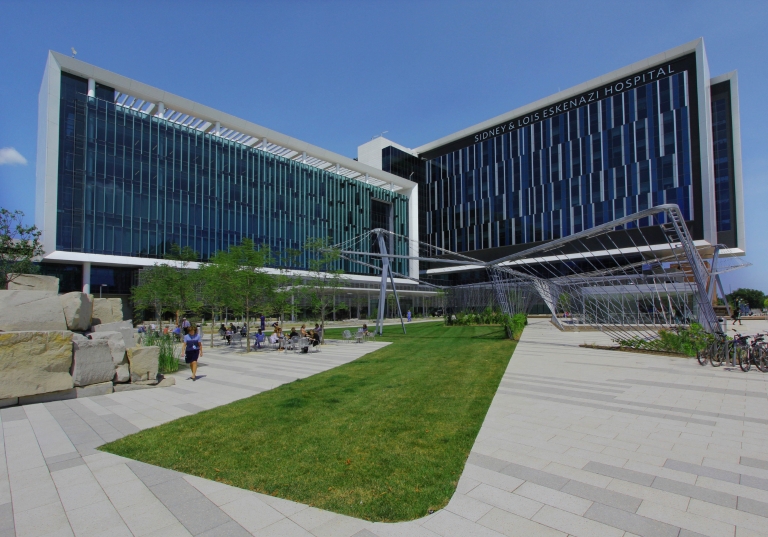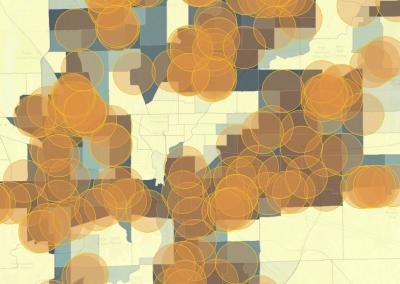Empowering Indiana Communities with Evictions & Foreclosure Data
More than 3.5 million U.S. households are threatened with eviction each year, a poignant illustration of rising housing costs. The ...
Quantifying the effects of lead exposure on children’s futures
At the August 24 Data & Drafts event, cosponsored by IndyPL, WFYI Public Media, and Bier Brewery, we presented findings from our ...
Greenspace Assessment for Marion County
Greenspace is an important component of urban centers and can have many beneficial effects for both humans and the environment. ...
Academic Standardized Test Scores for the Hearing Aid Assistance Program of Indiana (HAAPI) Participants and Applicants
This research was funded and produced in partnership with Hear Indiana, whose mission is to create equal opportunities for children ...
Worlds Further Apart
In our updated analysis of 104 ZIP Codes in the metro area (2014-2018), we identified the northern suburb of Fishers as our ...
Summer 2017 Health Edition
The Summer 2017 issue of SAVI Online Magazine covers the influence of location on health. Learn about our latest health projects, from identifying health concerns in Fort Wayne to investigating where tobacco retailers are concentrated.
Spring 2015 Health Edition
The Spring 2015 Health edition of the SAVI online magazine features stories on how SAVI is working with the Nurse-Family Partnership to support infant health, how we are contributing to community health assessments, and more.
Fall 2014 Basic Needs Edition
Read the Fall 2014 Basic Needs edition of the SAVI online magazine to learn how 2nd Presbyterian Church is partnering with SAVI to expand their partnerships and target their services. Also find information on food insecurity in Central Indiana counties, our research about domestic violence in the Marion County criminal justice system, and more.
Transportation Equity and the Older Adult Population
Read the report Access to transportation is important because it empowers older adults to maintain their independence. ...
Worlds Further Apart
Read the Report In our updated analysis of 104 ZIP Codes in the metro area (2014-2018), we identified the northern suburb ...
Unequal Access: Tobacco Retail in the Indianapolis Metro Area
The report reveals that tobacco is more readily available for purchase in areas that already struggle with quality-of-life issues.
Worlds Apart: Gaps in Life Expectancy in the Indianapolis Metro Area
Read the Report This life expectancy report was produced by the Richard M. Fairbanks School of Public Health at IUPUI in partnership ...
Hunger in Central Indiana
Read the ReportCentral Indiana’s 11 counties are home to 30% of the state’s 6,537,334 Hoosiers. Of this population, 290,550 (15%) are ...
SAVI helps IU researchers understand COVID-19’s spread
Researchers at the IU School of Medicine needed representative samples of several Indianapolis-area ZIP codes for a study of COVID-19. The Solution SAVI analysts provided demographic analyses of the relevant ZIP codes and created an online dashboard to measure how well volunteer pools mirrored the demographics of those ZIP codes.
Breaking the cycle: How data-informed support for low-income mothers helps children excel
Poverty has profound effects on the social, emotional, and intellectual development of children from low-income homes. Goodwill of Central and Southern Indiana’s Nurse-Family Partnership pairs low-income, first-time mothers with nurses who help them meet the challenges of being a new parent. SAVI and other resources facilitate the pairing of nurses with mothers.
Tiny budget, big results: How SAVI helps create better public-health outcomes
The Marion County Public Health Department has limited resources to fight the spread of infectious diseases. Melissa Titus uses SAVI to pinpoint the city’s most vulnerable areas--and then multiply the power of data through storytelling.
SAVI helps healthcare providers target root causes of illness
Knowing which people will benefit most from supportive services could maximize the benefits of a “social determinants” approach to healthcare. An award-winning app, created with SAVI and other sources, identifies the most at-risk patients and helps connect them to services that improve their health.
Kheprw Institute Addresses Food Access Aided by SAVI
After several groceries closed in their community, this community organization needed to understand where food access was lacking and who it affected. SAVI trained Kheprw Institute staff, using SAVI data and GIS software, to find areas lacking food access and the demographics of those communities.
No Results Found
The page you requested could not be found. Try refining your search, or use the navigation above to locate the post.
